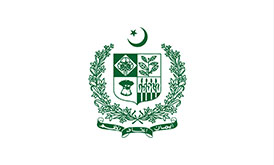
Ministry of SAFRON donated 1 million USD when the RAHA initiative was launched back in 2009. By the end of 2013, Pakistan continued to host the largest number of refugees in the world (1.6 million), nearly all from Afghanistan, according to a report released by United Nations High Commission for Refugees (UNHCR) in Islamabad at a ceremony marked in connection with World Refugee Day.
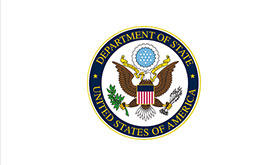
The United States of America’s Bureau of Population, Refugees, and Migration provide aid and sustainable solutions for refugees, victims of conflict and stateless people around the world. BPRM has so far donated 11.5 Million USD to RAHA Pakistan since (2009-2017) To improve livelihoods, rehabilitate the environment and enhance social cohesion within the communities of the Afghan refugee affected and hosting areas.

European Union has been working with the RAHA initiative since 2012. Projects implemented under RAHA in Education, Health, WASH and livelihood (vocational Training) mostly in the Baluchistan under the HA Component of RAHA. EU has so far donated 1.9 million USD.
EU programme support is primarily focused on the following sectors
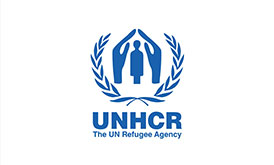
In 2009, in recognition to Pakistan’s hospitality towards refugees, the Refugee Affected and Hosting Areas (RAHA) initiative was launched, under the joint One UN programme with an initial appeal of US$140 million over five years. Projects implemented under the RAHA initiative are designed to improve the lives of people living in locations that have been impacted by the 37-year presence of Afghan refugees in Pakistan. A total of 3500 RAHA projects have been implemented in Baluchistan, Khyber Pakhtunkhwa, Punjab and Sind, with overall donation of 32.97 Million USD from (2010-2016).
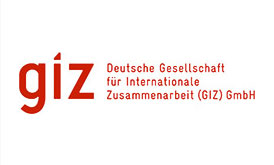
Gesellschaft für Internationale Zusammenarbeit or GIZ in short has been working in Pakistan on behalf of the German Government since 1990s. Working in the areas of good governance, basic education and vocational training, renewable energies/energy efficiency, and health. Since 2009 to date GIZ has donated 10.51 Million USD to the RAHA Initiative.
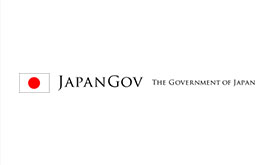
Govt. of Japan is an essential partner of RAHA’s development work in Pakistan under the framework of the One UN in Pakistan. Since 2010 the Govt. of Japan has donated 2.35 million USD to the RAHA initiative. Govt of Japan programme support is primarily focused on the following sectors
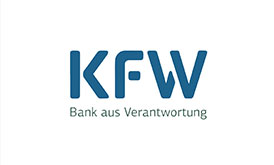
The KfW, formerly KfW Bankengruppe, is a German government-owned development bank, based in Frankfurt, Germany. KfW is supporting the Pakistani government in the fields of energy supply, health care, good governance and financial system development, and to this cause has so far donated 34.47 Million USD from (2010-2017), thereby helping to tap unused development potential through RAHAs (RHA Component) Pakistan.
KFW programme support is primarily focused on the following sectors
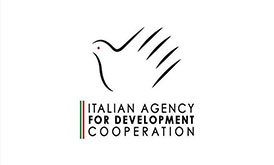
Pakistan got debt rescheduling under Paris Club arrangement in Nov, 2001. Five donor countries i.e. Belgium,Canada, Germany, Italy and Norway have entered into debt swap agreements with Pakistan under this arrangement. The Government of Italy cancelled 50% of its debt against expenditures incurred by GOP on Afghan refugees’ related projects. For the remaining 50% (approximately US$ 100 million) Government of Italy and Government of Pakistan signed an Agreement on Debt for Development Swap that became operational on January 2009. Under this Agreement, development projects submitted by Federal, Provincial or local Governments,Non-Governmental Organizations or channeled by relevant U.N Organizations on the agreed sectors of Health, Education, Agriculture and basic infrastructures leading to socio-economic development and environmental protection shall be financed.
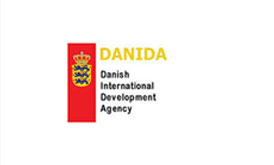
The Danish International Development Agency (DANIDA) is the section of the Danish Ministry of Foreign Affairs dedicated to providing aid and financing pro-development activities in developing countries worldwide. Denmark has been granting development assistance since the end of the Second World War. It is one of the five countries in the world that meets the United Nations's target of granting 0.7% of gross national income (GNI) in development assistance.

The AusAID works with the governments of developing countries to help them improve the way they deliver economic and community services. The aid is delivered to support the delivery of goods and services (e.g. humanitarian relief, building health clinics and schools, immunizing children), building national institutions and capacities, and initiating policy dialogue and reform by engaging local counterparts in government, civil society and business. AusAID works in all geographical areas of Pakistan with a more focused approach towards under-privileged and remote areas of the country. AusAID programme support is primarily focused on the following sectors:

UNDP country programme is nationally implemented as all our initiatives are designed and operationalised in consultation with the Economic Affairs Division, Government of Pakistan and the relevant federal and provincial ministries, departments and agencies. A sizeable number of initiatives are implemented under the national implementation modality, where a government counterpart takes responsibility for project implementation, achievement of results and use of resources. In other cases, UNDP itself implements a project while ensuring consultation with and oversight by the relevant national counterparts through representation on project boards. Other implementation arrangements rely on specialised UN agencies and civil society organisations that are selected through a competitive process and a pre-award assessment of their technical and financial capacities.
| Year | SAFRON | BPRM | GIZ | KFW | UNHCR | EU | Govt. of Japan | PIDSA | Other | Grand Total |
|---|---|---|---|---|---|---|---|---|---|---|
| 2009 | 1 | 2.3 | 0.38 | - | - | - | - | - | - | 3.68 |
| 2010 | - | 1 | 3.62 | 13.28 | - | - | 1.98 | - | - | 19.88 |
| 2011 | - | - | 2.32 | - | 6 | - | - | - | - | 8.32 |
| 2012 | - | - | 2.12 | - | 13.08 | 1.9 | - | - | - | 17.1 |
| 2013 | - | - | 2.07 | 3.2 | 8.5 | - | 0.37 | - | - | 14.14 |
| 2014 | - | 2 | - | 3.2 | 3.3 | - | - | - | - | 8.5 |
| 2015 | - | 6.2 | - | 6.37 | - | - | - | - | - | 12.57 |
| 2016 | - | - | - | 8.42 | 2.092 | - | - | - | - | 10.512 |
| 2017 | - | - | - | - | - | - | - | 1.44 | - | 1.44 | Total | 1 | 11.5 | 10.51 | 34.47 | 32.972 | 1.9 | 2.35 | 1.44 | - | 96.142 |